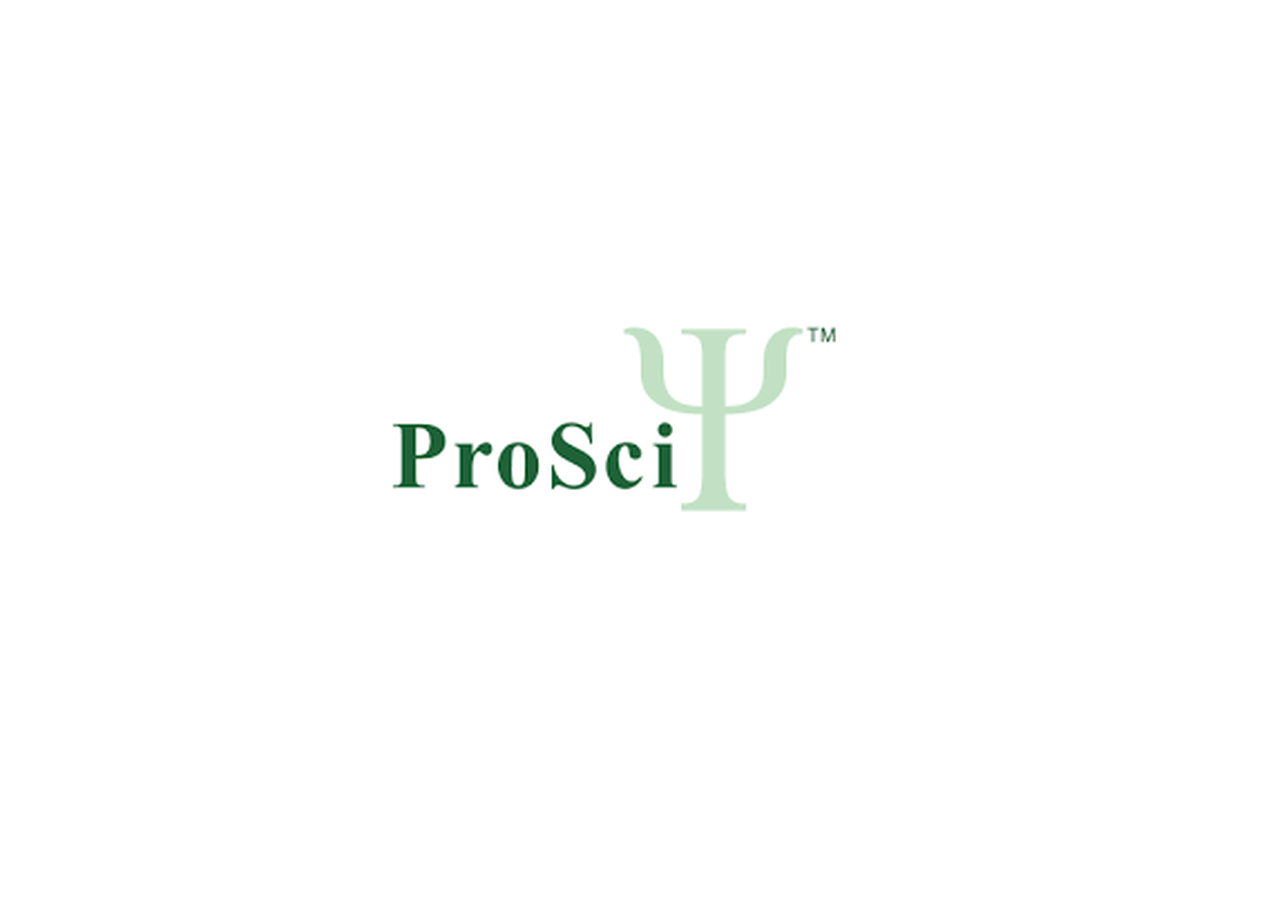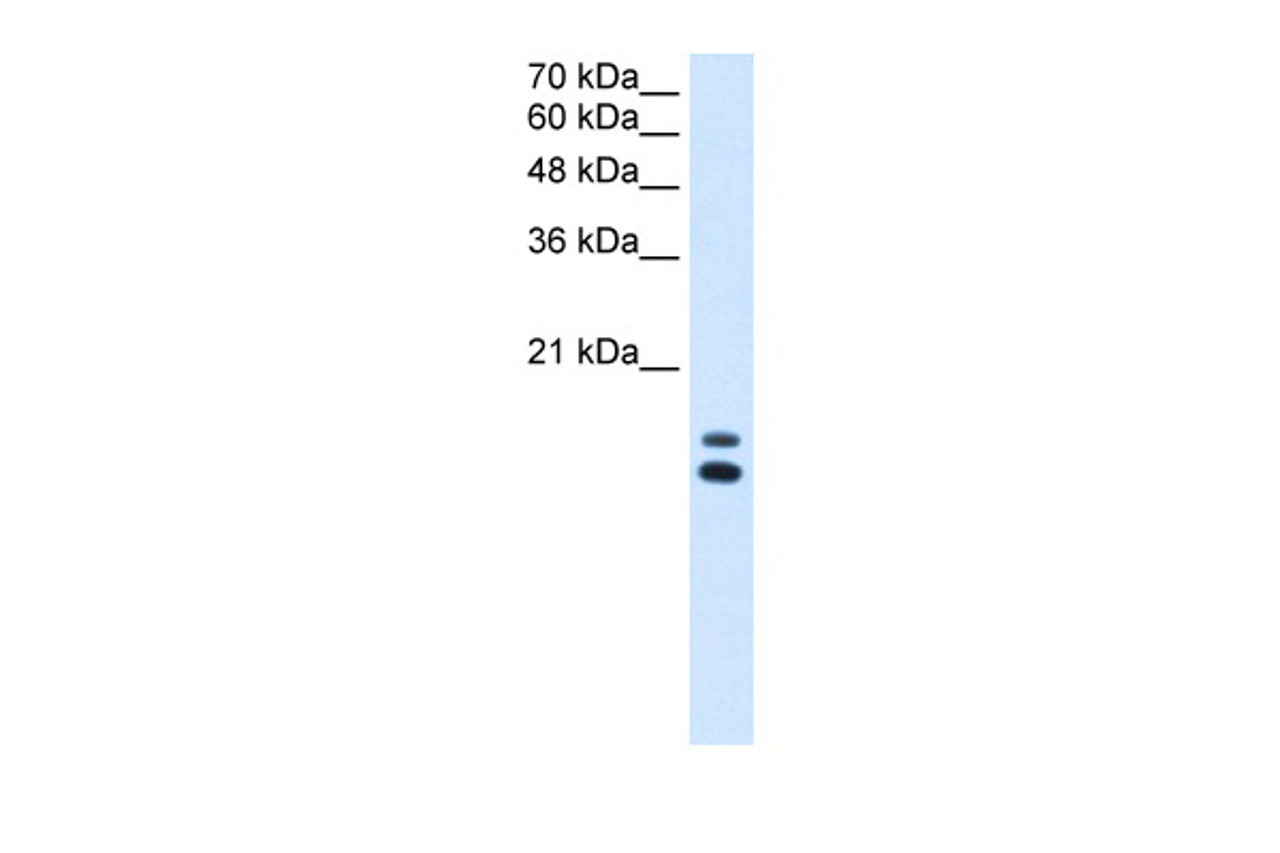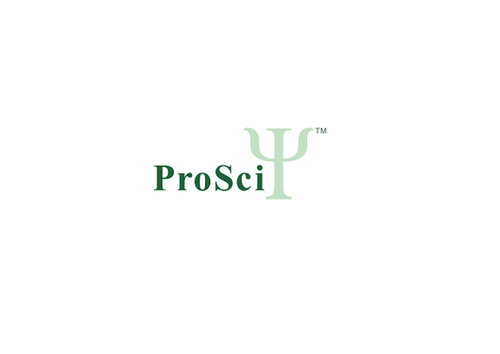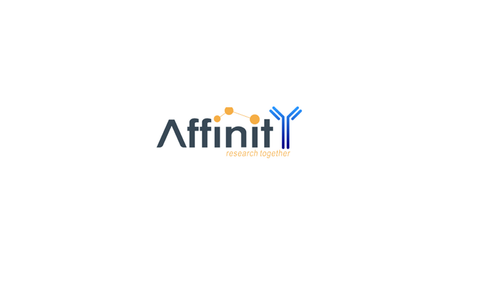Product Description
UXT Antibody | 30-715 | ProSci
Host: Rabbit
Reactivity: Human, Dog
Homology: N/A
Immunogen: Antibody produced in rabbits immunized with a synthetic peptide corresponding a region of human UXT.
Research Area: Cancer
Tested Application: E, WB
Application: UXT antibody can be used for detection of UXT by ELISA at 1:312500. UXT antibody can be used for detection of UXT by western blot at 2.5 μg/mL, and HRP conjugated secondary antibody should be diluted 1:50, 000 - 100, 000.
Specificiy: N/A
Positive Control 1: Cat. No. 1211 - HepG2 Cell Lysate
Positive Control 2: N/A
Positive Control 3: N/A
Positive Control 4: N/A
Positive Control 5: N/A
Positive Control 6: N/A
Molecular Weight: 19 kDa, 18 kDa
Validation: N/A
Isoform: N/A
Purification: Antibody is purified by protein A chromatography method.
Clonality: Polyclonal
Clone: N/A
Isotype: N/A
Conjugate: Unconjugated
Physical State: Liquid
Buffer: Purified antibody supplied in 1x PBS buffer with 0.09% (w/v) sodium azide and 2% sucrose.
Concentration: batch dependent
Storage Condition: For short periods of storage (days) store at 4˚C. For longer periods of storage, store UXT antibody at -20˚C. As with any antibody avoid repeat freeze-thaw cycles.
Alternate Name: UXT, ART-27, STAP1
User Note: Optimal dilutions for each application to be determined by the researcher.
BACKGROUND: UXT is a novel protein which is highly conserved in mouse. It interacts with the N-terminus of the androgen receptor and plays a role in facilitating receptor-induced transcriptional activation. It is also likely to be involved in tumorigenesis as it is abundantly expressed in tumor tissues.This gene encodes a novel protein which is highly conserved in mouse. It interacts with the N-terminus of the androgen receptor and plays a role in facilitating receptor-induced transcriptional activation. It is also likely to be involved in tumorigenesis as it is abundantly expressed in tumor tissues. This gene is part of a gene cluster on chromosome Xp11.23. Alternative splicing results in 2 transcript variants encoding different isoforms.
 Euro
Euro
 USD
USD
 British Pound
British Pound
 NULL
NULL










